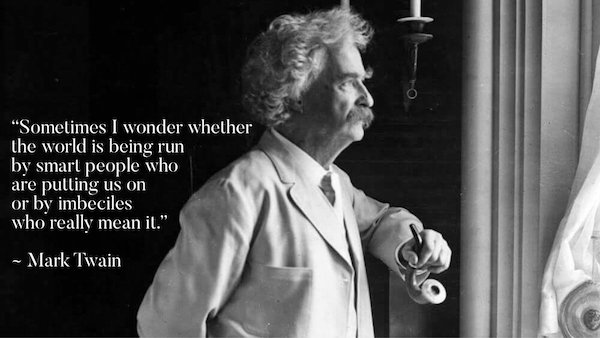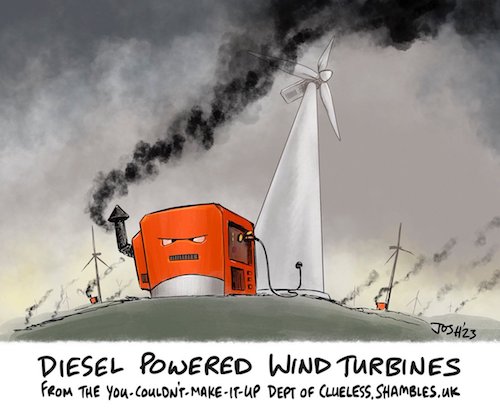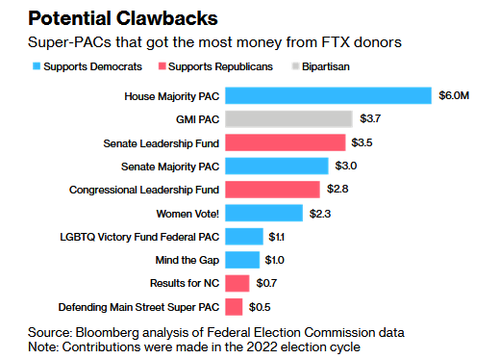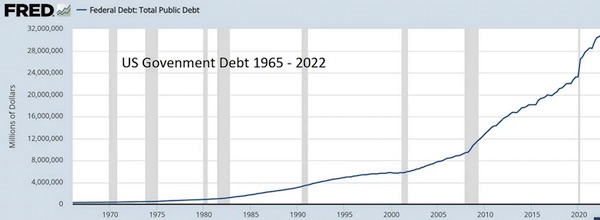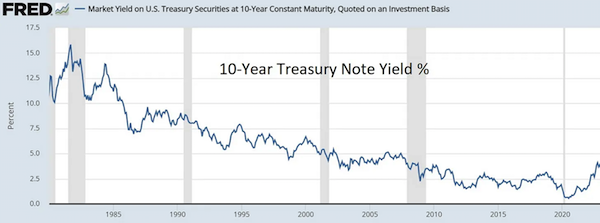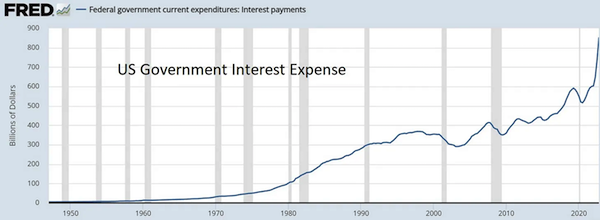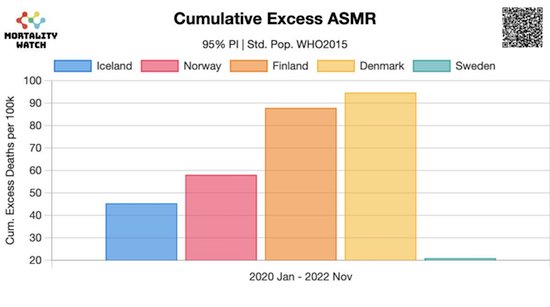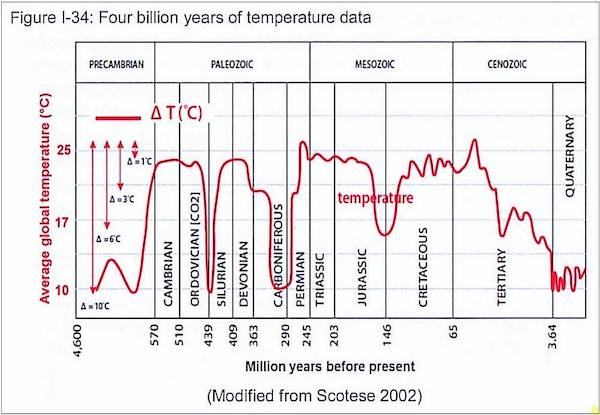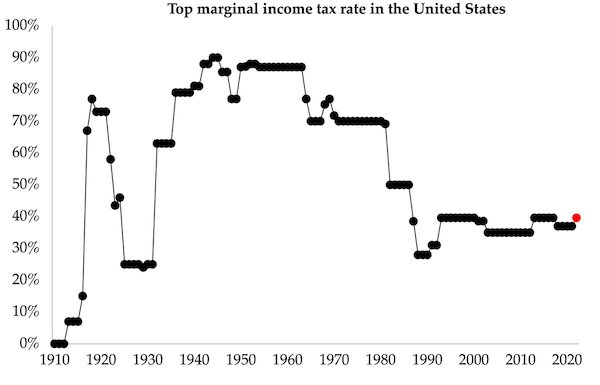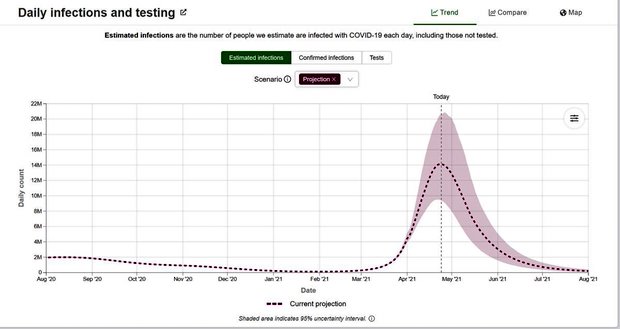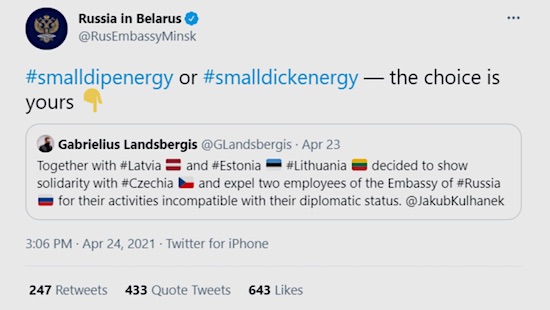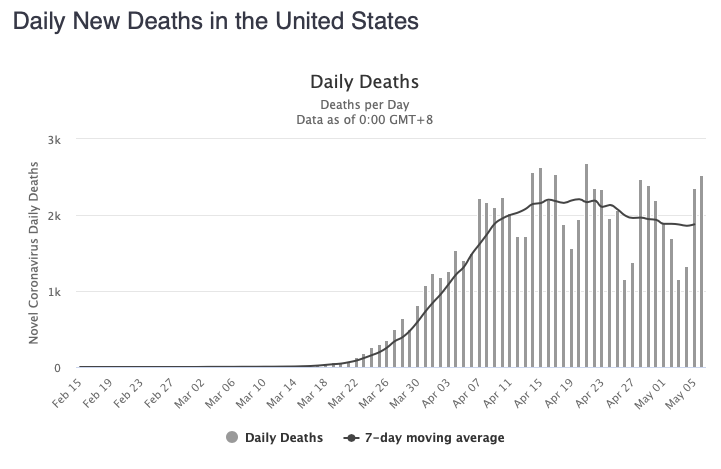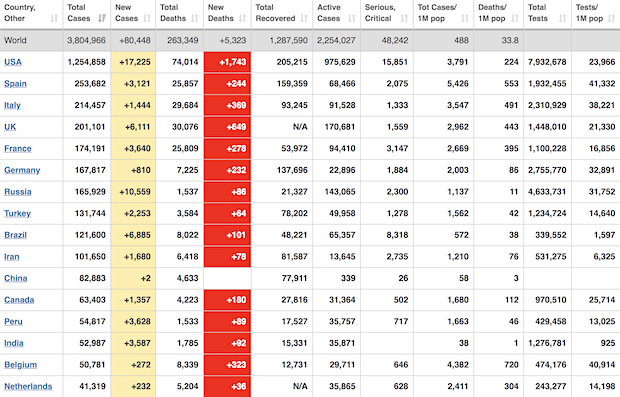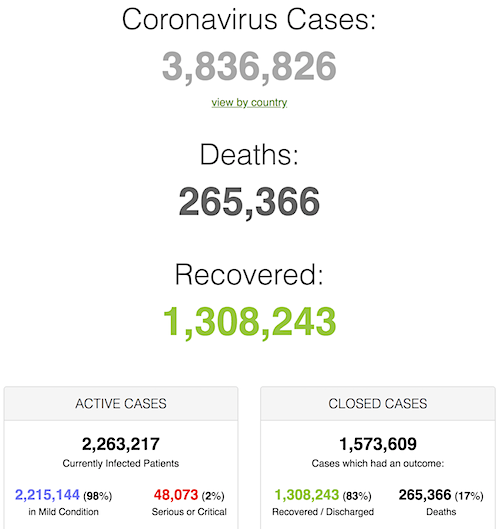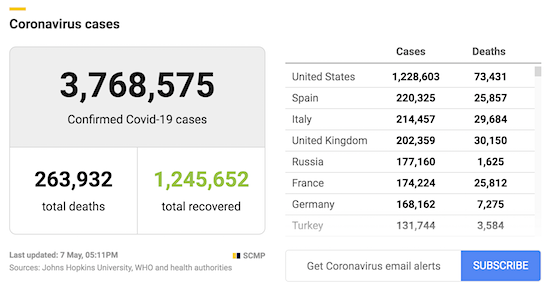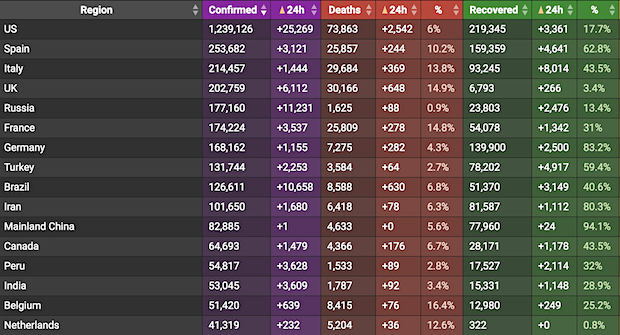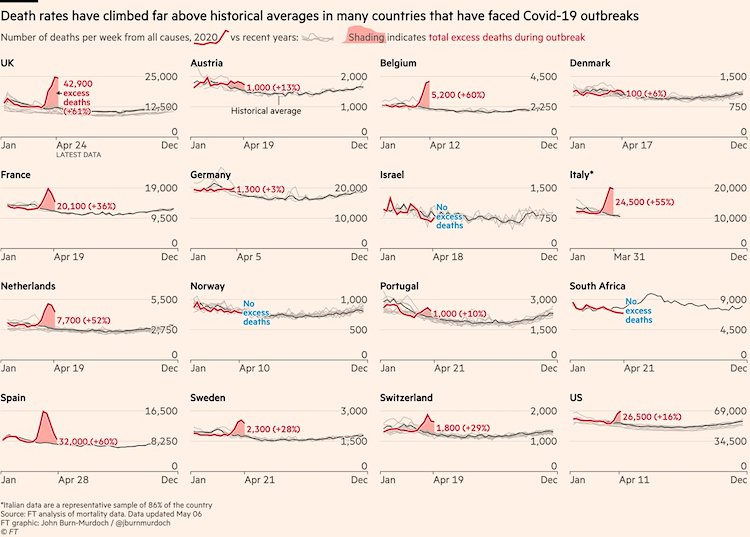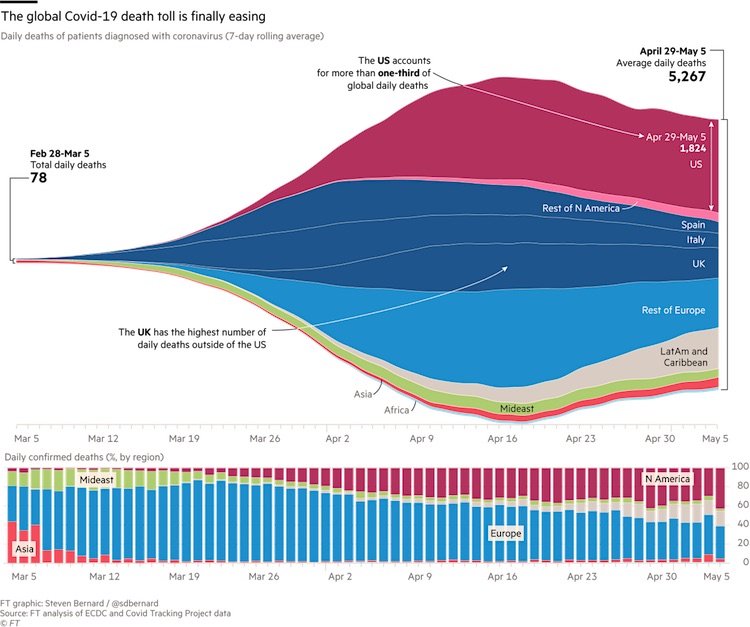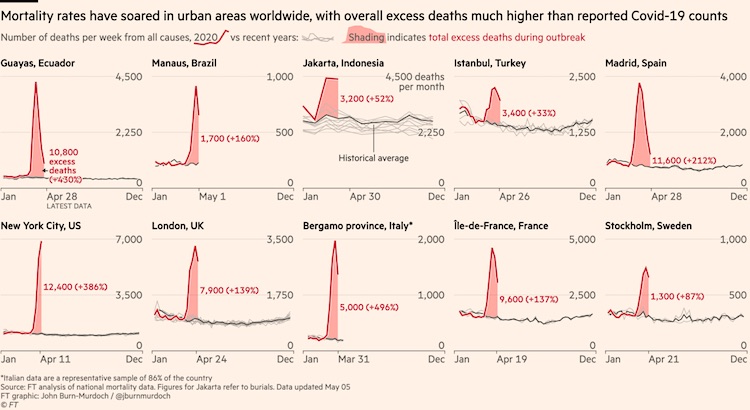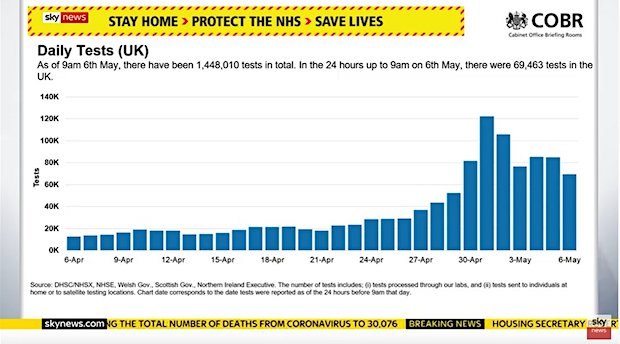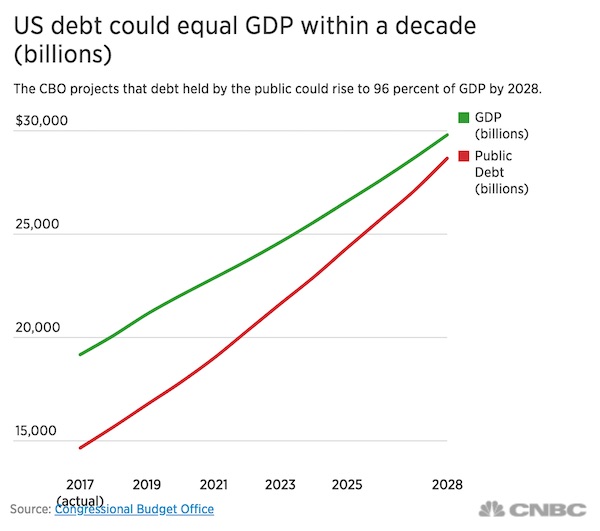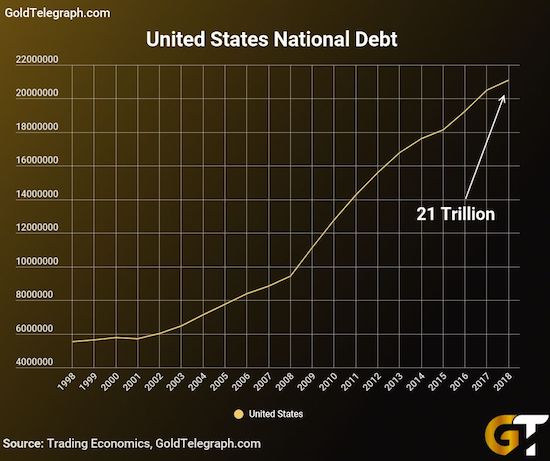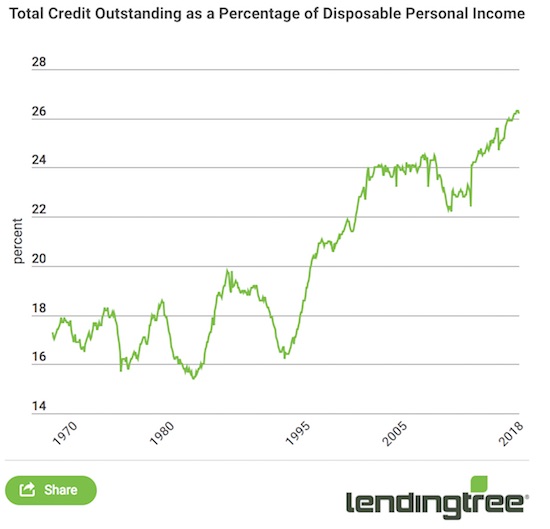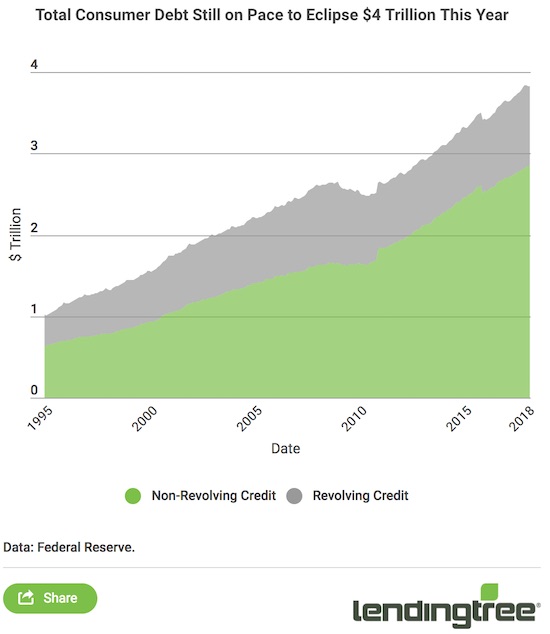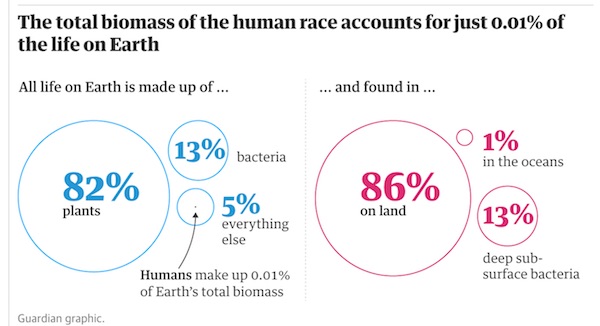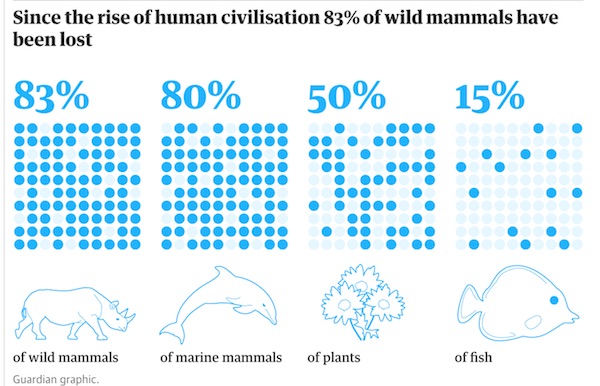
Keith Haring Untitled 1984



There are really no words to describe this clip. It’s one you just have to watch
Elon Musk “We’ll work harder” pic.twitter.com/60MYSsOzJF
— Wall Street Apes (@WallStreetApes) March 30, 2025
Elon Ukr
So impressed with @elonmusk's take on the war in Ukraine.
Never a truer word.
BRAVO! pic.twitter.com/W9gfcPjoMH
— Sebastian Gorka DrG (@SebGorka) March 30, 2025
40 years
🚨WATCH: A 40-year compilation of Donald Trump speaking out against NAFTA, the WTO, and other trade deals that have exploited American consumers and devastated U.S. manufacturing.
"When you put a tax on Japan for the products that they're selling, you will bring in hundreds of… pic.twitter.com/Br48dIHqqZ
— KanekoaTheGreat (@KanekoaTheGreat) March 30, 2025
Big election in Wisconsin tomorrow
MUSK: Wisconsin Election Could Shape the Fate of Western Civilization and Humanity’s Destiny
“This is one of those things that may not seem like it’s going to affect the entire destiny of humanity, but I think it will.”
Elon Musk is sounding the alarm: Tuesday’s Wisconsin… pic.twitter.com/myTfO16WY7
— Overton (@overton_news) March 31, 2025
DOGE SS
Yes, it is utterly insane.
The American people would have been disenfranchised if the machine represented by the Kamala puppet had won.
Thankfully, we have President Trump. https://t.co/DMQQlKkP9a
— Elon Musk (@elonmusk) March 31, 2025
Leavitt
She handles the press like no other! pic.twitter.com/xO1kHS9ZUz
— A Man Of Memes (@RickyDoggin) March 30, 2025
Tesla
Who is funding and organizing all these paid protests? https://t.co/QDjD9Gao8a
— Elon Musk (@elonmusk) March 30, 2025


“..we could enter a golden era of peace. Of course, the military-security complex would assassinate both Trump and Putin. Nevertheless, I believe both would risk it if only they could think of it.”
• Trump and Putin Could Bring Peace to the World (Paul Craig Roberts)
England and France, American puppet states for decades until the advent of Trump 2, are visibly at work disrupting Trump’s effort to reach a deal with Putin that ends the conflict in Ukraine. The Russian Defense Ministry said that the second strike on the Sudzha pipeline infrastructure in Russia’s Kursk Region last Friday, which completed the destruction of the facility, was the work of Britain and France. According to the Russian Defense Ministry, the targeting and navigation of the American HIMARS missiles (missiles Biden said he would not give to Zelensky but did) was provided by France. British specialists input the target coordinates and the launching command came from London.
What explains two American puppet states working against the United States government? Is it another CIA operation against Trump? Is it the US military-security complex paying the British and French governments to keep the profitable (for the US military-security complex) conflict going? Is it the Israeli-backed US Zionist neoconservatives continuing their efforts to diminish Russia’s influence in world affairs? Whatever is the answer, the Russian Foreign Ministry has no better idea than I do. The spokeswoman, Zakharova, blames Zelensky for failing to observe the negotiated agreement that both sides cease attacking the other’s energy infrastructure. Russia agreed to Trump’s proposal as a way of protecting nuclear power plants, the destruction which could be deadly for large numbers of civilians in Russia, Ukraine, and Europe.
Kremlin spokesman Dmitry Peskov blamed the Ukrainian military for not following Zelensky’s orders. It is a mystery how Zakharova and Peskov can continue to describe the situation as a Ukrainian issue when the two nuclear-armed (armed by Washington) NATO countries, Britain and France, are at work undermining the Trump-Putin peace negotiations. If Trump and Putin were in the league with the great strategists in history, what would they do to bring this clown act to an end? They would announce a military alliance. Putin can have Ukraine, the Baltics and as much of Europe as he wants. Trump will take Canada, Greenland, and Panama. No one on earth could do anything about this.
Putin does not want Ukraine, the Baltics, or Europe. He only wants Russia to be left alone and to engage freely with the countries that comprise the world. What Trump really wants, we don’t yet know. But a Trump-Putin alliance would establish dominion over the rule of earth, Israel included. Israel’s agenda of Greater Israel could easily be deep-sixed, Israel’s nuclear weapons destroyed, and justice given to the Palestinians. Israel would be reduced, instead of expanded, in boundary, and the Jews could use their talent for business to make the Middle East a prosperous area of the world.
President Trump seems to have the idea that the pursuit of mutual interests in business is far superior to the pursuit of war. Putin has shown himself to be the least combative of leaders of powerful countries. If only Trump and Putin could realize that a US-Russia military alliance would establish peace in the world, no more NATO, no more CIA overthrowing governments, no more propaganda about false news threats, we could enter a golden era of peace. Of course, the military-security complex would assassinate both Trump and Putin. Nevertheless, I believe both would risk it if only they could think of it.

“..he was “very angry” and “pissed off” about Putin’s statements about the legitimacy of Ukraine’s Vladimir Zelensky..”
• Trump Teases New Putin Call – NBC (RT)
US President Donald Trump has said he may have another phone call with Russian President Vladimir Putin in the coming days, NBC News reported on Sunday. Trump and Putin last spoke over the telephone on March 18 and agreed to work toward a peaceful end to the Ukraine conflict. Following the call, Russia and Ukraine carried out a prisoner swap and agreed to a partial ceasefire, although Moscow claims that Kiev has repeatedly broken it since. In an interview with NBC news on Sunday, Trump said the two presidents plan to speak again this week. The US president also stated he will sanction Russia if he considers that it is to blame in the event a ceasefire in the Ukraine conflict fails.
“If Russia and I are unable to make a deal on stopping the bloodshed in Ukraine, and if I think it was Russia’s fault – which it might not be – but if I think it was Russia’s fault, I am going to put secondary tariffs on oil, on all oil coming out of Russia,” he was quoted as saying. He added that he was “very angry” and “pissed off” about Putin’s statements about the legitimacy of Ukraine’s Vladimir Zelensky. In a speech on Thursday, Putin said that because Zelensky has not held elections, both he and the officials he has appointed have no legitimacy. The Ukrainian leader’s presidential term expired last May. Neo-Nazi units such as the notorious Azov are now effectively beginning to run Ukraine, empowered by continued Western military support, he emphasized.
The repeated Ukrainian ceasefire violations show that officials in Kiev no longer have control over the country’s military, Kremlin spokesman Dmitry Peskov said on Friday. Putin and Trump had their first call on February 12 in what was the first time that the leaders of Russia and the US had spoken in years. This was followed by two rounds of high-level talks between Russian and American delegations in Saudi Arabia. Additional discussions have also been held in Istanbul, focusing on diplomatic funding and a proposal from Moscow to reinstate direct flights between the two countries. Peskov said on Thursday that the next conversation between Trump and Putin had not yet been planned.

“Trump’s attacking Putin for denouncing Zelensky as illegitimate will surely not be taken as a very serious critique by the Kremlin, given the irony of Trump himself not too long ago having himself blasted Zelensky as a “dictator without elections”.”
• Trump ‘Very Angry’ & ‘Pissed Off’ At Putin, Threatens New Tariffs (ZH)
Why should Russia’s refusal to make big concessions come as any surprise to either the White House or mainstream media, given Russian forces are clearly steadily gaining on the battlefield? In a phone interview with NBC on Sunday, President Donald Trump said, “if Russia and I are unable to make a deal on stopping the bloodshed in Ukraine, and if I think it was Russia’s fault — which it might not be — but if I think it was Russia’s fault, I am going to put secondary tariffs on oil, on all oil coming out of Russia.” Trump went on to say he’s “very angry” and “pissed off” particularly at President Vladimir Putin’s attacking the legitimacy of Ukrainian President Volodymyr Zelensky’s and his leadership:
“I was very angry, pissed off” when Putin “started getting into [Ukrainian President Volodymyr] Zelensky’s credibility” and “started talking about new leadership” in Ukraine, Trump told NBC’s Kristen Welker in a phone call. Trump said that Putin’s comments on Zelensky are “not going in the right location.” This was in reference to a Friday plan pitched by Putin for a “transitional administration” for Ukraine under the auspices of the UN. The immediate aim would be ceasefire leading toward “democratic” election, followed by the negotiation of a peace agreement with the new authorities.
“We could, of course, discuss with the United States, even with European countries, and of course with our partners and friends, under the auspices of the UN, the possibility of establishing a transitional administration in Ukraine,” Putin said while visiting the northwestern Russian city of Murmansk. He laid out that “we could discuss the possibility of introduction of temporary governance in Ukraine,” while Ukraine holds “democratic elections, to bring to power a capable government that enjoys the trust of the people.” After this, he explained, the two warring sides would “start talks with them about a peace treaty.” Putin has in the recent past complained that Zelensky is ‘illegitimate’ and thus can’t legally be negotiated with, since he has canceled democratic elections on an indefinite basis.
So Trump has clearly brushed this aside in the new Sunday comments… However, Trump’s attacking Putin for denouncing Zelensky as illegitimate will surely not be taken as a very serious critique by the Kremlin, given the irony of Trump himself not too long ago having himself blasted Zelensky as a “dictator without elections”. Trump confirmed to NBC that he will speak again with his Russian counterpart this week. Russia has indicated that the question of the Black Sea ceasefire is still being negotiated, and is awaiting the removal of sanctions on agricultural exports which necessitates specific banks being reconnected to the Swift payment system. But Europe has that no, it won’t go along with any plan which results in easing sanctions.

War gives Brussels access to unlimited funds. That they themselves vote for. Re-armament, threat of Putin conquering all of Europe.
In case of peace, no such money flows.
• Kremlin Blasts EU For ‘Not Wanting Peace’ As It Refuses To Ease Sanctions (ZH)
Moscow has blasted the European Union’s declaration that it will not lift sanctions on Russia in the context of the US-backed Black Sea ceasefire deal. The Russian side has made clear that for the deal to be implemented the West must remove sanctions from the state-owned Rosselkhozbank as a precondition. “An integral part of the Black Sea deal is the lifting of sanctions on a Russian bank,” Kremlin spokesman Dmitry Peskov told reporters in reference to the primary financial entity overseeing Russian agricultural products. “If European countries don’t want to go down this path, it means they don’t want to go down the path of peace in unison with the efforts shown in Moscow and Washington,” he added. Rosselkhozbank has remained cut off from the SWIFT financial messaging network due to EU sanctions, and Russia is seeking immediate reconnect if peace is to be secured in the Black Sea.
European Commission President Ursula von der Leyen explained at the end this week, “The sanctions are very significant; they are painful; they have an impact on the Russian economy, and they represent a powerful lever.” So clearly Europe is not ready to let go of this ‘power lever’. Von der Leyen made clear that the sanctions “will remain in effect until a just and lasting peace is established in Ukraine.” But she did also say that “when the war is over, the sanctions might be removed.” Other European leaders have echoed this viewpoint, for example with German Chancellor Olaf Scholz calling sanctions relief a “grave mistake” which “makes no sense” without a ceasefire first. The Zelensky government too stands against the easting of anti-Russia sanctions.
The Kremlin has further described that Europe is actively blocking Trump’s good-faith efforts to establish peace, and that this is ultimately behind the EU’s refusal to lift sanctions. Russian sources have meanwhile pointed out that Russia is still thriving despite the West’s record number of sanctions on the country. Trump admin is increasingly openly clashing with the EU on the Black Sea deal…
https://twitter.com/FiorellaIsabelM/status/1905033950084370863?ref_src=twsrc%5Etfw%7Ctwcamp%5Etweetembed%7Ctwterm%5E1905033950084370863%7Ctwgr%5E551bca574affbef7d0775d8124338bc30c8af20c%7Ctwcon%5Es1_c10&ref_url=https%3A%2F%2Fwww.zerohedge.com%2Fgeopolitical%2Fkremlin-blasts-eu-not-wanting-peace-it-refuses-ease-sanctions
“Earlier this week, President Vladimir Putin asserted that the Russian economy has become the fourth largest in the world in purchasing power parity terms after those of China, the US and India, despite a record 28,595 sanctions being placed on it by Washington, Brussels and their allies,” wrote RT. “According to the Russian government’s data, the country’s economy grew 4.1% in 2024, surpassing the official forecast of 3.9%,” the same report said.

Another way of saying the same thing; peace is a bigger threat than war.
• Baltic States Fear Ukraine Ceasefire – FT (RT)
The Baltic nations believe a ceasefire in the Ukraine conflict would increase the security threat they face, the Financial Times has reported, citing the defense ministers of the countries. In recent weeks, a 30-day pause on strikes against energy infrastructure by Moscow and Kiev has been agreed upon, while there have been moves toward reviving the Black Sea grain deal as part of efforts to find a diplomatic solution to the conflict. The FT said in an article on Sunday that “a full ceasefire is still seen as far off,” but officials in Estonia, Latvia and Lithuania, who have been among the most vocal backers of Ukraine in the EU and NATO since the escalation between Moscow and Kiev in February 2022, are already concerned that it might be achieved at some point.
“We all understand that when the war in Ukraine will be stopped, Russia will redistribute its forces very quickly. That means also the threat level will increase significantly very quickly,” Estonian Defense Minister Hanno Pevkur told the outlet. Pevkur claimed that Moscow could redeploy 300,000 troops from the contact line with Ukraine to Russia’s western borders once a ceasefire takes effect. Meanwhile, the Estonian defense minister rejected a plan by the UK and France to send a so-called “reassurance force” made up of Western European soldiers to Ukraine after the fighting stops. “We cannot jeopardize the security of the eastern flank of NATO. We cannot fall into the trap that our forces are somehow fixed in Ukraine. Then we will have risks at our border,” he explained.
The article also cited Lithuanian Defense Minister Dovile Sakaliene, who said earlier this week that “Russia will use this time following a ceasefire to speed up its military capabilities. They already have a huge, battlefield-trained army, which is going to get even bigger.” “Let us not have any illusions. Let us not lie to ourselves that Russia is going to be done after Ukraine,” she said. Russian President Vladimir Putin has repeatedly dismissed claims that Moscow has any aggressive plans towards NATO as “nonsense” that is meant to scare the European population and justify increases in military spending. US President Donald Trump’s special envoy, Steve Witkoff, who met with Putin at the Kremlin earlier this month, told American journalist Tucker Carlson last week that Russia is “100% not” interested in invading NATO countries. Suggesting that Moscow harbors such plans is “preposterous,” according to Witkoff.

How to say Azov without saying Azov. Problem is, Zelensky will not be accepted as winner.
• Zelensky Has Plan To Take Out Election Rivals – Economist (RT)
Vladimir Zelensky and his team have begun laying the groundwork for a summer presidential election in Ukraine in order to “catch rivals off guard” and be reelected before the fragmented opposition has a chance to regroup, The Economist reported, citing senior government sources. Zelensky’s five-year presidential term expired in May 2024, but he refused to call new elections, citing martial law. Russian President Vladimir Putin has repeatedly questioned Zelensky’s legitimacy, arguing that his status prevents him from signing legally binding documents, including a peace deal with Moscow. US President Donald Trump once referred to Zelensky as a “dictator without elections.” According to the Economist article published on Sunday, Zelensky “called a meeting last week to task his team with organising a vote after a full ceasefire, which the Americans believe they could impose by late April.”
A senior government source claimed that Zelensky intends to move quickly to reduce electoral competition by giving potential rivals little time to prepare and virtually “run unopposed.” The source justified the move by saying, “a long campaign would tear the country apart.” Zelensky claimed in an interview last month that the “population is against elections,” arguing that holding a vote would undermine the country’s defense posture. “If we suspend martial law, we will lose the army,” he said. The Ukrainian parliament is set to vote on whether to extend martial law for another 90 days before it expires on May 8. Most sources cited by The Economist expect Zelensky to push for a summer election, with early July cited as the earliest possible date under Ukraine’s 60-day minimum campaign law.
Former Ukrainian President Pyotr Poroshenko, described by the outlet as “a sworn foe” of Zelensky, predicted that elections could take place “any time from August to October.” Poroshenko claimed the campaign had already de facto begun in February, when Zelensky placed him under sanctions in an attempt to write off his candidacy and dissuade former commander-in-chief Valery Zaluzhny from challenging him.Zelensky’s sanctions also targeted exiled Ukrainian opposition leader Viktor Medvedchuk. Medvedchuk led the Opposition Platform – For Life party, formerly the second-largest faction in the Ukrainian parliament, until his arrest in April 2022. The party was later banned, and Medvedchuk was transferred to Russia in a prisoner exchange in September 2022.
Putin has claimed that Zelensky has “absolutely no chance” of winning a fair election due to his low approval ratings, “unless something is grossly rigged.” An internal poll last month suggested that Zelensky would be defeated by Zaluzhny 30% to 65%, as many Ukrainians are “clearly frustrated with their war leader.” Critics also say that a fair election would require dismantling censorship and ending government control over media coverage. In 2022, Kiev introduced what it called the United News TV telemarathon – a 24/7 joint information program produced by the country’s major media outlets – while cracking down on alternative narratives viewed as pro-Russia propaganda.

Medvedev: “The nit is illegitimate. There’s nothing to respect him for. He failed, his people are dying, and his country is disappearing.”
• Diplomat Explains Putin’s Proposal For Temporary Ukraine Administration (RT)
Russian President Vladimir Putin’s proposal to establish a temporary international administration in Ukraine under UN supervision is based on historical precedents, according to Kirill Logvinov, who heads the Foreign Ministry’s Department of International Organizations. He told TASS on Sunday that the UN already has experience with this process. Moscow has repeatedly stated that it is not possible to sign a peace agreement with Kiev because the current Ukrainian leadership lacks legitimacy. Vladimir Zelensky’s presidential term expired in May 2024, though he has remained in office without holding elections, citing martial law.
Putin suggested earlier this week that creating “external management or temporary administration” under the UN could facilitate elections in Ukraine and provide a legitimate foundation for negotiations. A peace deal signed with a newly elected leader, he said, “would be recognized around the world” and could not be overturned later. There is no formal mechanism for creating such administrations in the UN,” Logvinov acknowledged. However, he noted that the UN has established transitional authorities in several post-conflict areas, including Cambodia, East Timor, and Eastern Slavonia, setting a precedent for this type of arrangement. “In all cases, the first step was reaching an agreement between the parties to the conflict – directly or through intermediaries – on the appropriate transfer of powers to the UN,” he explained.
Once an agreement is reached, the parties or their mediators would then submit a formal appeal to the UN. The Security Council would instruct the secretary-general to prepare a framework for the temporary administration, including a timeline and budget. Logvinov stressed that the final decision rests with the UN Security Council following a report by the secretary-general outlining the form and functions of the proposed administration. Officials in Kiev have rejected the idea. Andrey Kovalenko, the head of Ukraine’s Center for Countering Disinformation, claimed on Telegram that the plan is an attempt by Moscow to delay peace talks.
Washington has not formally commented on the proposal. However, Reuters quoted an unnamed White House national security spokesperson who said Ukraine’s governance should be determined by its constitution and people. UN Secretary-General Antonio Guterres dismissed the proposal on Friday, insisting that “Ukraine has a legitimate government, and so obviously that must be respected.” Former Russian President Dmitry Medvedev, currently the deputy chair of the Russian Security Council, criticized Guterres’ remarks, calling them a “double lie.” Referring to Zelensky in a post on X, he said: “The nit is illegitimate. There’s nothing to respect him for. He failed, his people are dying, and his country is disappearing.”

“It is catastrophic for [Congress] to not act and to let individual judges nullify laws nationwide in a preliminary postur..,”
• Inside President Trump’s Ambitious Policy Strategy (Devlin)
President Donald Trump’s pace since returning to the White House has surprised the president’s friends, perhaps even more than his enemies. On the 66th day of his administration, Trump signed the 100th executive order of his second term, breaking FDR’s record of 99 executive orders in the first 100 days. While Trump plows ahead, the leftist lawfare complex that once sought to imprison the president is attempting to handcuff his second term by filing more than 130 lawsuits against the administration. As a deputy assistant to the president and Trump senior policy strategist, May Mailman is one of those administration staffers tasked with executing President Trump’s game plan. She sat down for a special episode of “The Signal Sitdown” filmed at the White House. “I think actually the president’s speed has always been this fast,” Mailman said of the offensive posture of the administration. It has always been, ‘I need this, I need this, let’s go, let’s go, let’s go.’”
Mailman said this strategy emerged during the transition to ensure that on Day One, President Trump was keeping his promises. “Everything that he said he was going to do on Day One, we’re going to do on Day One. So there was just that capturing of promises and making sure that that was executed.” The added advantage to the strategy? The president’s opponents are caught off guard: “They can’t keep up if you just keep executing,” Mailman said. The second Trump administration’s personnel, she suggested, are reflecting the dynamism coming from the Oval Office. “I think what you’re seeing with personnel this time is people who are oriented toward action. And so a lot of people are oriented towards process, they’re oriented toward contemplation, they’re oriented toward a lot of other things. But these people? They want to get things done.”
In this administration, “a staffer recognizes that we are here to execute the president’s agenda,” Mailman said. “That is your job, and you should do it smart, and you should do it right, and you should ask questions, and you should do it in a way that’s not idiotic, but your job is to execute.” But, as a four-year veteran of the first Trump White House, Mailman didn’t anticipate coming back to the White House in 2025. “I wasn’t going to do it, but then I worked on the transition and there was so much momentum,” Mailman told The Daily Signal. “So how could you not? And so here we are.”Nevertheless, the administration’s opponents would like nothing more than to kill the president’s momentum. That much has been made clear by the more than 130 lawsuits, an overwhelming majority of them filed by leftist groups, against the administration. Some activist judges are granting these leftist groups injunctions blocking Trump policies.
“The lawfare has been alarming,” Mailman said. “The number, I think, is probably to be expected [because] everybody loves to fundraise off of this,” Mailman explained. “The problem is what happens next… If the Supreme Court continues to allow nationwide injunctions, which is before any trial, before any evidence, before any final legal determination… I think it will forever harm the standing of the judiciary in the minds of the American public.” Part of solving the problem of rogue judges lies with Congress. It’s not only the executive branch being challenged by the judiciary, either. Mailman argued, “the Legislature [is] seeing their laws just get totally shredded by the judiciary,” as well.
Now, Republicans on Capitol Hill are currently weighing impeachment, investigations, and legislation, among other potential solutions. “It is catastrophic for [Congress] to not act and to let individual judges nullify laws nationwide in a preliminary posture,” Mailman said. “And they need to carve back this power if they care at all about their own power.” “The Legislature kind of needs to think about that as an institution,” she told The Daily Signal. “Do we care about the people? Because … when judges take over, who loses? The people.”

“$100 million in pro bono legal services..”
• Trump Inks $100 Million Deal With Skadden Law Firm (ET)
A prominent Wall Street law firm has struck a deal with the White House to provide $100 million in pro bono legal services. Skadden, Arps, Slate, Meagher & Flom LLP will dedicate the services to causes supported by both the firm and the Trump administration, including assisting veterans and other public servants, ensuring fairness in the U.S. justice system, and combating anti-Semitism. The firm also committed to funding at least five law graduates under a fellowship dedicated to supporting the causes each year and employing merit-based hiring practices, vowing not to deny representation to members of politically disenfranchised groups. This deal comes as President Donald Trump has, in recent weeks, issued executive orders targeting multiple major legal firms, directing government agencies to revoke their security clearances and terminate contracts.
While Trump has not issued one against Skadden, the deal seems to be a way to prevent that from happening. “This was essentially a settlement,” President Donald Trump said in announcing the deal at a White House event. “We appreciate Skadden’s coming to the table. As you know, other law firms have likewise settled the case. And … what’s gone on is a shame.” A White House statement explained that Skadden had approached Trump about its “strong commitment to ending the weaponization of the justice system and the legal profession.” Jeremy London, the firm’s executive partner, said the two parties worked “constructively” to reach an agreement. “The firm looks forward to continuing our productive relationship with President Trump and his administration. We firmly believe that this outcome is in the best interests of our clients, our people, and our firm,” London said.
News of the agreement came just hours after two other law firms, WilmerHale and Jenner & Block, sued the president for ordering the retraction of their security clearances and the termination of their government contracts.
In WilmerHale’s case, Trump cited the firm’s employment of former special counsel Robert Mueller and his aides as one of the top reasons for the move. Mueller “wielded the power of the Federal Government to lead one of the most partisan investigations in American history,” Trump wrote in the executive order, referring to Mueller’s investigation of claims Trump colluded with Russia to influence the 2016 presidential election. Those claims proved to be unfounded.Jenner, on the other hand, hired Andrew Weissmann, Mueller’s top prosecutor. In separate legal actions filed in the District of Columbia, the two firms accused the administration of punishing its political opposition and asked the court to find Trump’s orders unconstitutional. Paul Weiss, another Wall Street law firm, brokered a deal with the White House last week to provide $40 million in free legal services for mutually supported causes. In return, the administration revoked an order similar to those targeting Jenner and WilmerHale.

The art of the deal incoming. Patience.
• ‘100%’ US Gets Greenland – Trump (RT)
US President Donald Trump has said he is sure that Washington will take over Greenland and that he has already had “absolutely” real conversations about annexing the Danish autonomous territory. “We’ll get Greenland. Yeah, 100%,” Trump told the US broadcaster NBC in a phone interview on Saturday. There is a “good possibility that we could do it without military force,” he stated, adding that he would not “take anything off the table.” According to the American president, the annexation of Greenland is an issue of “international peace” and “international security and strength.” When asked what message the move would send to the rest of the world, Trump stated: “I don’t really think about that. I don’t really care.”
A video shared by Trump earlier this week claimed that the island was threatened by “Russian aggression” and “Chinese expansion.” The clip stated that the partnership between Greenland and the US “is not just history. It is destiny.” Russian President Vladimir Putin said on Thursday that “Russia has never threatened anyone in the Arctic.” The interview came just a day after US Vice President J.D. Vance visited the resource-rich Arctic territory. During his stay, he accused Denmark of doing a poor job for the people of Greenland. “I think that you’d be a lot better coming under the United States’ security umbrella than you have been under Denmark’s,” he said while visiting a US base on the island.
Trump initially proposed buying the Danish autonomous territory during his first term in 2019 and has reignited the discussion after returning to office. He has since repeatedly promised to make the island a part of the US, arguing that it is needed for security purposes. The American president’s statements have drawn an angry reaction from Copenhagen. Danish Defense Minister Troels Lund Poulsen stated this week that such actions were not appropriate for a close ally and were only “escalating tensions.” He also accused Trump of going “too far.” Danish MP and Defense Committee Chairman Rasmus Jarlov warned in mid-March that the US’ aspirations to annex the island could lead to a war between NATO nations. Greenland’s prime minister, Mute B. Egede, also denounced what he called “aggressive pressure” by the US.

“..Trump was asked about why he wants to continue to be president, which Welker described is “the toughest job in the country.” “Well, I like working,” replied Trump, who would be 82..”
• Trump Says He Is ‘Not Joking’ About Running for 3rd Presidential Term (ET)
President Donald Trump on Sunday said that he is “not joking” about recent talk of him potentially seeking a third term in office, although such a move would likely face significant legal hurdles. “A lot of people want me to do it,” Trump told NBC News on Sunday morning. “But, I mean, I basically tell them we have a long way to go, you know, it’s very early in the administration.” When asked about whether he is serious or joking about the third term comments, Trump said, “I’m not joking.” “It is far too early to think about it,” he said, adding elsewhere in the interview that he is “focused on the current” term in office.
Since taking office, Trump has, on multiple occasions, suggested that he wants to run for a third term, which could pose a legal challenge, because the 22nd Amendment of the U.S. Constitution states “no person shall be elected to the office of the President more than twice.” That amendment was ratified in 1951 after President Franklin D. Roosevelt was elected four consecutive times. Roosevelt was the only president in U.S. history to be elected to either a third or fourth term.
Days after Trump took office in January, Rep. Andy Ogles (R-Tenn.) proposed an amendment to the Constitution that could allow presidents to be elected for three terms. However, amending the Constitution would require two-thirds of Congress members to vote for its approval, which would then have to be ratified by three-fourths of state Legislatures. Explaining why he would want to seek a third term, Trump said that, “You have to start by saying, I have the highest poll numbers of any Republican for the last 100 years.” “We’re in the high 70s in many polls, in the real polls, and you see that. And, and you know, we’re very popular,” Trump said. When asked about how he could be elected to a third term, Trump told NBC News there might be ways to do so.
NBC’s Kristen Welker then provided him with a hypothetical situation: “Well, let me throw out one where President Vance would run for office and then would, basically … if he won, at the top of the ticket, would then pass the baton to you.” In response, Trump said, “Well, that’s one. But there are others, too. There are others.” “Can you tell me another?” Welker asked Trump. “No,” he said. The 12th Amendment, which was ratified in 1804, says that “no person constitutionally ineligible to the office of President shall be eligible to that of Vice-President of the United States.” Also in the interview, Trump was asked about why he wants to continue to be president, which Welker described is “the toughest job in the country.” “Well, I like working,” replied Trump, who would be 82 at the end of his current term.

DOGE addresses real problems.
“The Social Security Old-Age and Survivors Insurance Trust Fund will run out of reserves by 2033 – when today’s youngest retirees turn 70 – leading to an immediate 24 percent benefit cut under the law..”
• Interest Costs On US Debt To Exceed Economic Growth By 2045 (JTN)
The U.S. is on track to hit a dangerous milestone by 2045, according to an analysis of the new Congressional Budget Office’s long term budget outlook. The average interest rate on debt will exceed the economic growth rate by 2045, sparking the beginning of a debt spiral. “Interest costs will reach a record 3.2 percent of GDP this year – exceeding the cost of defense and Medicare – and further grow to 5.4 percent of GDP by 2055,” according to the Committee for a Responsible Federal Budget’s review of the latest CBO data that was released on Thursday. “The average interest rate on debt will exceed the economic growth rate by 2045, sparking the beginning of a debt spiral,” the CRFB added. The watchdog group said that “high and rising debt and deficits would have many negative consequences for the budget and the economy including slower income growth, higher interest rates and interest payments on the national debt, increased geopolitical risks, undue burden on future generations, reduced fiscal space to respond to emergencies, and an increased risk of a fiscal crisis.”
The U.S. national debt is on pace to set new concerning records between now and 2055. “Federal debt held by the public will rise from 100 percent of Gross Domestic Product (GDP) in Fiscal Year (FY) 2025 to 156 percent of GDP by 2055 – 50 percentage points above the prior record,” according to the CRFB analysis. “Annual deficits will grow from 6.2 percent of GDP in 2025 – already twice as high as they were as recently as 2016 – to 7.3 percent of GDP by 2055. This is the highest they’ve ever been outside of a crisis.” The CBO is warning that Social Security is just 8 years from insolvency. “The Social Security Old-Age and Survivors Insurance Trust Fund will run out of reserves by 2033 – when today’s youngest retirees turn 70 – leading to an immediate 24 percent benefit cut under the law,” read the CRFB analysis of CBO data. “If combined with the disability insurance trust fund, the combined trust fund would be insolvent by 2034.”
The CRFB said policymakers will need to make tough decisions this year with respect to the debt and deficit. “CBO’s latest long-term budget outlook reminds us that the federal budget is on an unsustainable long-term path, and policymakers will be faced with decisions this year that will have major implications for the trajectory of our debt over the next 30 years,” read the analysis. The group said extending the 2017 Tax Cuts and Jobs Act without ways to fully cover the cost would drive debt to higher than 200% of GDP. The CRFB has encouraged lawmakers to find enough offsets to fully cover the cost of tax reform. “Even without this additional borrowing, the annual budget deficit will reach 7.3 percent of GDP in FY 2055 – higher than at any point outside of World War II, the Great Recession, and the COVID-19 pandemic,” they said.
Scott Hodge, former president of the Tax Foundation, shared his reaction to the CBO’s latest report with Just the News. “CBO’s latest long-term budget forecast should be a wakeup call to the White House and Congress that they must do more to get spending under control or the federal debt will rise to unsustainable levels,” said Hodge, a tax and fiscal policy fellow at Arnold Ventures in Washington, D.C. Arnold Ventures describes itself as a philanthropy “dedicated to improving the lives of all Americans through evidence-based policy solutions that maximize opportunity and minimize injustice.” Hodge noted that the CBO assumes that the 2017 Tax Cuts and Jobs Act, which expires at the end of this year, would “potentially raise more than $4 trillion in new taxes over a decade” if it is extended, but this new tax revenue still falls short of closing the deficit gap since spending is rising faster than taxes.
“We should also note that CBO is forecasting sluggish economic growth for the next decade, which puts a premium on the need to renew the 2017 tax cuts to boost economic growth. Lawmakers will have to find responsible ways to offset the cost of these tax cuts so as to not add to the mounting debt. It will take leadership to meet this twin challenge,” he said.

“..they buried the report while allegedly making claims directly refuted by their own experts.”
• Biden Admin Accused of Burying Conflicting Climate Change Report (Turley)
There is a major story developing on Capitol Hill after House Committee on Oversight and Government Reform Chairman James Comer, R-Ky, revealed that a long-withheld report from the Biden Administration directly contradicted the claims of climate change used to limit increased U.S. liquefied natural gas (LNG) exports. The suggestion is that this was an knowing effort to cap carbon admissions rather than carbon emissions. The impact that new U.S. LNG exports have on the environment and the economy was reviewed by U.S. Energy Department scientists and completed by September 2023. It appears that neither President Biden nor Secretary Jennifer Granholm liked the science or the conclusions. Rather than “follow the science,” they buried the report while allegedly making claims directly refuted by their own experts.
The report was finished while Biden was still running for reelection and would have likely enraged environmentalists. The draft study, “Energy, Economic, and Environmental Assessment of U.S. LNG Exports,” found that, under all modeled scenarios, an increase in U.S. LNG exports and natural gas production would not change global or U.S. greenhouse gas emissions. It further found that it would not increase energy prices for consumers. Biden and Granholm reportedly buried the report and then announced a pause on all new U.S. LNG export terminals in January 2024, citing the danger to environmental and economic impacts. Comer’s office told Fox News Digital that DOE repeatedly declined to provide this study to the House Oversight Committee or comply with other requests for information.
What is most concerning is that our LNG exports help reduce the dependence on Russia and would have decreased the revenues to that country to support its war in Ukraine. However, critics charge that Biden ignored the national security and economic benefits. Supporters note that we still exported a massive amount of LNG. When the U.S. ramped up exports to Europe, progressive Democrats like Sen. Jeff Merkley, D-Ore., went ballistic. This appears to have worked in shelving the study while slowing demands for further increases. The Biden Administration later released data in December 2024 suggesting that a rise in exports could cause consumer prices to rise by as much as 30%. There are obviously two sides to this debate. The problem is that it seems that only one side was allowed to be publicly presented by the delay in the release of the study.

“Rep. Seth Moulton, D-Mass., dared to say he didn’t want his daughters to play sports against biological boys—like 80% of his country—only to turn around and vote against his girls three months later.”
• The Party That Woke Broke (Suzanne Bowdey)
Democrats have been wallowing in the despair of last November’s elections for months, unable—or maybe unwilling—to crawl out of the pit of public opinion they find themselves in. “It’s hard to win if you don’t know why you lost,” Axios’ Alex Thompson observed. But it’s even harder, some would say, if you know and do nothing about it. To most people, the solution to the party’s problems is simple. After a year of losing ground with virtually every demographic—men, black Americans, Hispanic Americans, Asian Americans, young people, Independents, suburban moms—the polling all points to Democrats being completely out of step with everyday voters. So why not just abandon the extremism Americans rejected? For the party of Barack Obama and Joe Biden, the answer is much more complicated.
The crisis facing Democrats isn’t about their identity; they have one. The crisis is that they can’t moderate their ideology—or embrace it—without severe consequences. As National Review’s Rich Lowry put it, “The reason Joe Biden won in 2020 is he didn’t seem like a progressive, and one reason that his party lost in 2024 is that he governed like one.” For Democrats, ideological extremism is their kryptonite and their lifeblood. It’s what excites the base and repels the populace. In other words, it’s a recipe for long-term political disaster. And yet, in several instances, the Democrats who’ve tried to soften their positions or build a temporary bridge to sanity have been beaten back into conformity. After the election, Rep. Seth Moulton, D-Mass., dared to say he didn’t want his daughters to play sports against biological boys—like 80% of his country—only to turn around and vote against his girls three months later. “I was just speaking authentically as a dad about one of many issues where I think we’re just out of touch with the majority of voters,” he explained to the angry mob in November. “ … I stand by my position.”
Or at least he stood by it until the time came to act on it, Americans learned. But lately, even the barest hints of compromise are punished. Look at the hysteria over Senate Minority Leader Chuck Schumer, D-N.Y., who needs increased security simply for voting with Republicans to stop a government shutdown—something his own party argued would be a disaster for hard-working families a month earlier. For sticking to that position, there’ve been furious calls for his ouster and a leadership mutiny in party ranks. Then, there’s California Gov. Gavin Newsom, a Democrat, who tested the waters earlier this month with his whiplash comments on Title IX. Sitting down with Turning Point USA’s Charlie Kirk on his podcast, the governor was asked about the issue of trans-identifying athletes in girls’ sports. To most people’s surprise, the progressive replied, “I think it’s an issue of fairness. I completely agree with you on that.” He emphasized his point by adding, “It’s deeply unfair.”
Newsom, who, by his own admission, has been a “leader” in the “LGBTQ” movement, encouraged his party to admit that a lopsided playing field is cause for concern. He said, “We’ve got to own that. We’ve got to acknowledge it.” His sudden openness to a broader discussion was met with horror on the Left and deep skepticism on the Right—a perfect illustration of the conundrum facing Democrats. As California Family Council President Jonathan Keller pointed out on a recent episode of the “Outstanding” podcast, “He’s trying to set it up in such a way that … he’s going to look like he’s a moderate.” But frankly, Keller said, “I’m not positive that’s actually going to be an effective strategy from him. I think what it may be effective in doing is getting him destroyed in the primaries,” he said, referring to the root problem for Democrats, which is that what wins primaries is the same thing that loses general elections.
In Newsom’s case, even an insincere shift to the middle is next-to-impossible to pull off, thanks to years of activist baggage. As Kirk wrote after the interview, “I’m under no illusions about why I was invited: Gavin Newsom wants to run for president in three years, and he thinks that talking [to] conservative figures like me increase his recognition, help him present as a centrist, and cast him as a champion of the Left in a time when the [L]eft has no real leaders. … We shouldn’t fall for this … ” he warned. “[A]nd fortunately, swerving to the center won’t be that simple for Gavin. … He knows his current record can’t win him the White House, and so he’s trying to rewrite what that record is.” Polling proved the governor’s flirtation with rationality didn’t help his case. Of 1,000 California voters, only 24% said the podcast helped them see Newsom as more moderate, while 17% insisted it made them less likely to see him as a moderate. A majority, 59%, said it made no difference. Americans are not so easily fooled. A few soundbites does not a record make.
“Like the national Democrat[ic] Party and the legacy media,” John Nolte stressed, “Newsom has painted himself into a corner where the only way to survive is through the fealty to the 20% of hard leftists that make up the Left’s base of activist and financial support. … With all their lies and lunacy in support of things like open borders and this transsexual nonsense, Newsom, Democrats, and the corporate media have alienated all the normal people, probably forever. So that 20% is all they’ve got.” The foot soldiers of the Democratic Party grasp the paradox. They’ve tried, unsuccessfully, for the last nine years to turn the heads of leadership to mainstream positions on things like gender, immigration, education, and energy. “I don’t want to be the freak show party like they have branded us,” one DNC member from Florida complained after the election when it was obvious the Left’s social radicalism had cost them every lever of power in Washington.
“When you’re a mom with three kids,” she pointed out, “and you live in middle America, and you’re just not really into politics, and you see these ads that scare the bejesus out of you, you’re like, ‘I know Trump’s weird or whatever, but I would rather his weirdness that doesn’t affect my kids.’” Others echoed her alarm. “The progressive wing of the party has to recognize—we all have to recognize—the country’s not progressive, and not to the far left or the far right. They’re in the middle,” said Joseph Paolino, a DNC committeeman for Rhode Island. It felt like, at least from those comments, that the party was finally going to pivot. “This is basically a rebuild job from the bottom up,” former DNC Chair Donna Brazile emphasized. But what happened when push came to shove?
Against the pleas of their non-elite base, the far-left won even greater control of the party—electing woke, anti-gun, pro-trans, defund-the-police, ICE-abolishing, climate change-pimping DNC leaders in Chairman Ken Martin and Vice Chair David Hogg. To the everyday Democrats, who’d been “begging the party to ditch the radical Left,” it was an astonishing betrayal. “The weaknesses of Democrats among non-white voters, particularly Hispanic and black working-class voters, is pretty significant,” authors of a new book, “Where Have All the Democrats Gone?” insist. “They’re sort of realizing this is a problem. On the other hand, they’re so invested in this whole vector of cultural issues. They’re worried about the blowback on social media and from the college-educated ‘liberalish’ voters who are increasingly a loyal base of the Democratic Party. Trump understood that and he played upon it. He continues to play upon it. He continues to get votes upon it. And the Democrats are oblivious to it.”
Not all Democrats, it seems. A growing chorus of disillusioned officials are starting to speak up about the continued reckoning that awaits the party in future elections. During snippets of his interview with NPR Monday, Rep. Tom Suozzi, D-N.Y., sounded outright logical in his assessment. “We can’t just resist. It can’t just be why we’re against Trump and what’s wrong with Trump. … The Democratic brand has been damaged.”
“When you ask people … ‘What do the Republicans stand for?’ They say, ‘Well, Make America Great Again. They want to cut the size of government, they want to give tax cuts, stuff like [that].’” Then, Suozzi said, when you ask, “‘What do the Democrats stand for?’ And I think the people are kind of scratching their head a little bit, they believe in, like, [abortion] and LGBT rights—which I believe in those things too—but I don’t know that you can build a whole party around that.” He talked about running on the border issue in 2024, and his consultants protested, arguing, “‘Well, Tom, that’s a Republican issue. I don’t know if you should be talking [about that].’ I said, ‘No, this is what the people of my district are talking about. We can’t ignore what the people are talking about.’”

“States competed for capital and labor by keeping their taxes and regulations light and efficient. As a result, America became the world’s most competitive economy, attracting a flood of foreign capital and workers.”
• What Made America Great In The Gilded Age (Loyola)
“We were at our richest from 1870 to 1913. That’s when we were a tariff country,” said President Donald Trump recently, and he’s not wrong. But tariffs aren’t the whole story. The genius of the Gilded Age was interstate regulatory and tax competition. That economy boomed. From 1870 to 1913, America’s gross domestic product grew at nearly 5% per year. Even though America’s population nearly tripled during that time, with 30 million immigrants, per capita GDP doubled. Steel production boomed, surpassing Britain, France, and Germany combined. Railway miles quadrupled. A period that began amid the ruins of civil war ended with America in first place among the world’s great economic powers. Washington collected lots of tariffs then, but little else.
Before the 16th Amendment paved the way for federal income taxes in 1913, Congress was spending barely 1% of GDP—compared with nearly 25% today. Meanwhile, the federal power to regulate commerce was limited to transactions that actually crossed state lines, leaving the vast majority of regulation to the states. States competed for capital and labor by keeping their taxes and regulations light and efficient. As a result, America became the world’s most competitive economy, attracting a flood of foreign capital and workers. It’s no surprise that the booming economy of the Gilded Age was able to sustain tariffs. Of course, that period had its dark sides—political corruption, “Robber Barons,” child labor, and environmental degradation. These excesses sparked the progressive movement.
The sprawling administrative state created by President Woodrow Wilson was soon dictating prices for nearly every major commodity and service, leading to massive economic distortions. By the stock market crash of 1929, the economy was no longer competitive. A new round of tariffs—the Smoot-Hawley Tariff Act of 1930—devastated the economy, deepening the Great Depression. Franklin D. Roosevelt’s New Deal doubled down on progressivism, dramatically expanding the reach of the federal government. His court-packing scheme coerced the Supreme Court into dismantling the crucial constitutional limits on the federal power to regulate commerce, and the federal leviathan was born.
Progressives viewed interstate competition as a “race to the bottom” and held that it was the federal government’s role to stop it. What this meant in practice was protections from competition for every special-interest group that could hire lobbyists in Washington. Government became a system for wealth redistribution through subsidies, unfunded mandates, and government-created cartels—from the farm program to the National Labor Relations Act to socialized medicine. America’s private sector remains the world’s most innovative and productive, but a century of progressive policy has driven companies and jobs offshore. Such policies have proven particularly toxic in areas of low-skill labor, as attested by today’s Rust Belt towns, Appalachian communities, and inner cities.
Investment flows where taxes and regulations are low and production factors like labor and electricity are reliable and affordable. In all those metrics the U.S. is falling further and further behind much of the world. In the energy sector, heavily subsidized renewable energy is pushing America’s electricity rates toward European levels. America could soon be facing the same deindustrialization that Germany and Great Britain are facing today. Even in America’s most innovative sectors—like high technology—warning signs are everywhere. The entire supply chain for semiconductor manufacturing has moved offshore, with only high-end engineering remaining in the U.S. China is already making inroads into these areas, and if America doesn’t act fast, it could soon start falling behind even in the high-tech race.
Today, both parties are trapped in the maze of progressive government, a system that subordinates the public interest to special-interest groups seeking protection from competition—from the Jones Act to the sugar program. That is the real swamp, and escaping it will require thinking outside the box, with ideas such as Elon Musk’s Department of Government Efficiency. As President Donald Trump recognizes, the U.S. must become once again the world’s most attractive place to do business. Tariffs alone will not get us there. We must free America’s economy from the stifling burdens of progressive government and tax policy, and return to the interstate competition that made America great in the Gilded Age.




Midwives
Dr. Suzanne Humphries: "That's why the truth gets locked down over COVID. You've seen the athletes dropping dead. You know about the cardiomyopathies and the pulmonary emboli and and all that kind of thing. Nobody's talking about the stem cells that the newborn babies are born… pic.twitter.com/Cf7rkHZDBS
— Camus (@newstart_2024) March 30, 2025

Soon Shiong
You are being lied to about Cancer –
This man should be trending right now!@TuckerCarlson pic.twitter.com/uq0oBY14LP
— “Sudden And Unexpected” (@toobaffled) March 30, 2025

Vietnam
Dr. Anthony Phan: There was no autism in Vietnam before Bill Gates brought his vaccines
"Going back to Vietnam, Vietnam doesn't have anything. There's no such thing as autism in 1975, in year 2000, year 2001. There's no such thing. When Vietnam signed the WHO and when when… pic.twitter.com/qd3egN83bT— Camus (@newstart_2024) March 30, 2025

Bittern
The amazing Eurasian bitternpic.twitter.com/rionv19pWB
— Massimo (@Rainmaker1973) March 30, 2025

Caracal
Unexpected sound of a caracal
— Science girl (@gunsnrosesgirl3) March 30, 2025

Zoetrope
Next Level Zoetrope art
📹limbatrip (Yohei Kisanuki)
pic.twitter.com/Kb84q93pKQ— Science girl (@gunsnrosesgirl3) March 30, 2025

Small world
Small world art of David Zinn
pic.twitter.com/UzeburjSXh— Science girl (@gunsnrosesgirl3) March 30, 2025

Emanuel
If you stop to watch one thing today, let this be it. pic.twitter.com/TktUtULBRO
— Nature is Amazing ☘️ (@AMAZlNGNATURE) March 30, 2025

Bell
The swan rings the bell when it wants a treat. 😂
This is Wells Cathedral in England.
Started by one of the Bishop's daughters in the 1850s, the tradition of swans ringing a bell for food at The Bishop's Palace continues to this day! pic.twitter.com/VM14cIcxP4— The Figen (@TheFigen_) March 29, 2025

Whale
Imagine receiving the trust of a whale. Probably the coolest achievement ever known to mankind. pic.twitter.com/KJw0TuKRI3
— Nature is Amazing ☘️ (@AMAZlNGNATURE) March 30, 2025

Support the Automatic Earth in wartime with Paypal, Bitcoin and Patreon.







